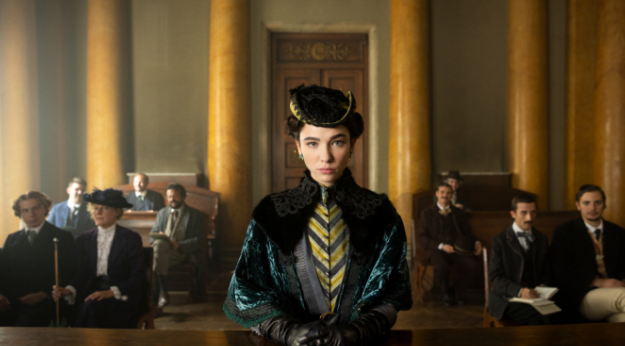‘The Law According to Lidia Poët’ nicks the gavel on the strong female character trope
https://www.netflix.com/tudum/articles/lidia-poet-true-story-facts
Poët gets her ability to practice law revoked despite graduating from university with top scores.
April 12, 2023
What is a strong woman? Rey from “The Rise of Skywalker” overpowering more experienced force-wielders and fighters? Dr. Sienne Brooks luring the male lead astray in “Inferno” with her charm? Or Marvel’s early version of Natasha Romanov — a pawn with no personal wants? From what we see in mainstream media, women are only strong if they possess heightened superpowers, looks, and skills.
The Netflix original series “The Law According to Lidia Poët” makes a half-attempt to depict a strong woman. Based on a true story, the six-episode series follows the early career of Lidia Poët (Matilda de Angelis) — Italy’s first female lawyer — as she fights for her clients and right to practice law in late 19th-century Turin. After being forbidden from practicing law, Lidia persuades her older brother, Enrico Poët (Pier Luigi Pasino), to let her work in his law office as a secretary. In reality, Lidia Poët continues her work as a lawyer in everything but name.
Her relationship with Enrico is messy but real. We first see the Poët siblings together in Episode 1, firing sarcasm at each other, with Enrico expressing his disbelief that she had become a lawyer. As the Poët siblings start to work together, we meet a different Enrico. Not the puppy who blindly follows the female lead (like Malyen Oretsev from Shadow and Bone) but the brother who, in Episode 3, hugs his sister after learning the dark truth behind her refusal to marry. And like any sibling, Enrico still bickers with Lidia, complaining how she is “too involved” in her advocacy. Lidia’s relationships with other male characters feel equally authentic; they disagree but support each other.
In Lidia’s flashbacks, her mother demands to know why she believes she is “different” from everyone else, making me brace myself for the “not like other girls” monologue. Thankfully, we never hear Lidia’s response, and instead, the series shows how she deserves her advocacy success. For example, Lidia forges her brother’s signatures to visit imprisoned clients and uses her observational skills to obtain the information she cannot access as a woman. When her brother follows her audacity to bribe an official, the scene looks almost laughable, suggesting the lengths women had to go through to do their job.
The series shows a lot of skin, with multiple sex scenes per episode. Not surprisingly, we first meet Lidia having sex with her lover Andrea Caracciolo (Dario Aito) before the camera pans out to a one-room apartment filled with everything law-related. In recent years, critics criticized nudity in films for enforcing harmful stereotypes. It is no secret that female leads are four times more likely to appear naked on screen than similar male counterparts. But can nudity be used purposely in films? In Episode 6, Lidia unbuttons her collar to blend in with sex workers on their way to the Guglielmo Pepe Barracks so she can interrogate the general there. Here, loose skin enables Lidia to help prove her client’s innocence. The other times, the naked women depicted in the series are unnecessary for the story’s development.
We still have a long way before the mainstream media can consistently portray strong women in all shapes and sizes. Otherwise, “The Law According to Lidia Poët” pays tribute to the people campaigning for opportunities and suffrage in the 19th century. With the mix of sibling banter, shocking murders, and a feminist message, the series makes for a gripping watch.











